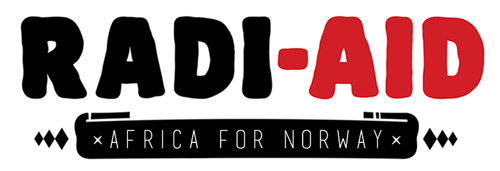ABOUT
Radi-Aid is a former awareness campaign created by the Norwegian Students' and Academics' Assistance Fund (SAIH). Although we will no longer develop this campaign, we will keep all the resources available. Visit the SAIH webpage for information about our current campaigning.
Emerging from the satirical campaign and music video ‘Radi-Aid: Africa for Norway’, the campaign has focused on arranging the Radi-Aid Awards (2013-2017), celebrating the best - and the worst - of development fundraising videos. Along with this, we have produced several satirical, awareness-raising videos. In 2017, we also developed the Social Media Guide for Volunteers and Travelers.
The goal with Radi-Aid is to challenge the perceptions around issues of poverty and development, to change the way fundraising campaigns communicate, and to break down dominating stereotypical representations.
Since 2012, our videos have been selected as one of the best practices on development communication by OECD (2012), one of the best "Ads worth spreading" by TED (2014), and joined The Guardian's list of the best aid parodies (2014). In addition to wide international media attention, we have been invited to speak about our work at TedX talks, workshops and a numerous of conferences around the world. Our campaign also been exhibited at various exhibitions, including the German Colonial Museum in Berlin (2016).
Main objectives
Radi-Aid aims at addressing the following issues:
Charity campaigns risk being counterproductive to their own goals if they obscure the actual causes of poverty. We need more nuanced information about development and poverty, not oversimplified half-truths.
In many charity ads, poor people are portrayed as passive recipients of help, without the ability or desire to make their country a better place to live. This kind of portrayal creates a significant distinction between us and them.
The last years have shown increasing examples of creative and engaging portrayals in charity ads, demonstrating the many various ways a charity campaign can succeed without traditional and stereotypical representations.
Stereotypes and oversimplifications lead to poor debates and poor policies. NGO communicators play a crucial role in people’s understanding of development in the world today, and therefore also a crucial role in fighting these representations.
How we can do it better
Previous nominees for the Golden Radiator in the Radi-Aid Awards have shown how powerful you can communicate in a nuanced, creative and engaging way, without using stereotypes – and still manage to raise money for your campaign. What characterize these campaigns, is that:
They avoid one-sided representation and the single story
The target group is presented with ownership and has an active role in providing solutions, they speak for themselves and no “white hero” is speaking on behalf of them
Although the goal is to raise money, they avoid exploiting the suffering of people. People are portrayed with dignity – with potential, talents, strengths.
Some take use of humour and positivity, which helps to not focus on people’s guilt or create apathy among potential donors/supporters, and highlights instead people’s strengths and common humanity. It is okay, and even good to create feelings, but not feelings like pity/feeling sorry for.
They portray people in a way that resonate with the audience – situations, emotions etc. You feel solidarity and connected with them, instead of feeling sorry and disconnected from their reality
The potential donors/supporters are inspired to take action beyond donating
They respect their audience, by not exaggerating the story or suggesting that “with your donation, you have changed a life/saved the world”
They are clear and transparent about their role in the project
They provide context and manage to explain the underlying causes of problems, not presenting merely cheap and easy solutions to global issues.
About SAIH
The Norwegian Students’ and Academics’ International Assistance Fund (SAIH) is the solidarity organization of students and academics in Norway. In addition to long-term development work, SAIH works with advocacy activities in Norway and internationally, in order to improve the conditions for education and development globally. SAIH runs annual campaigns on topics related to academic freedom and access to higher education. Read more about SAIH.
Contact us
Sven Larsen
Head of Communication and Politics department
+47 936 29 882 / sven.larsen@saih.no



